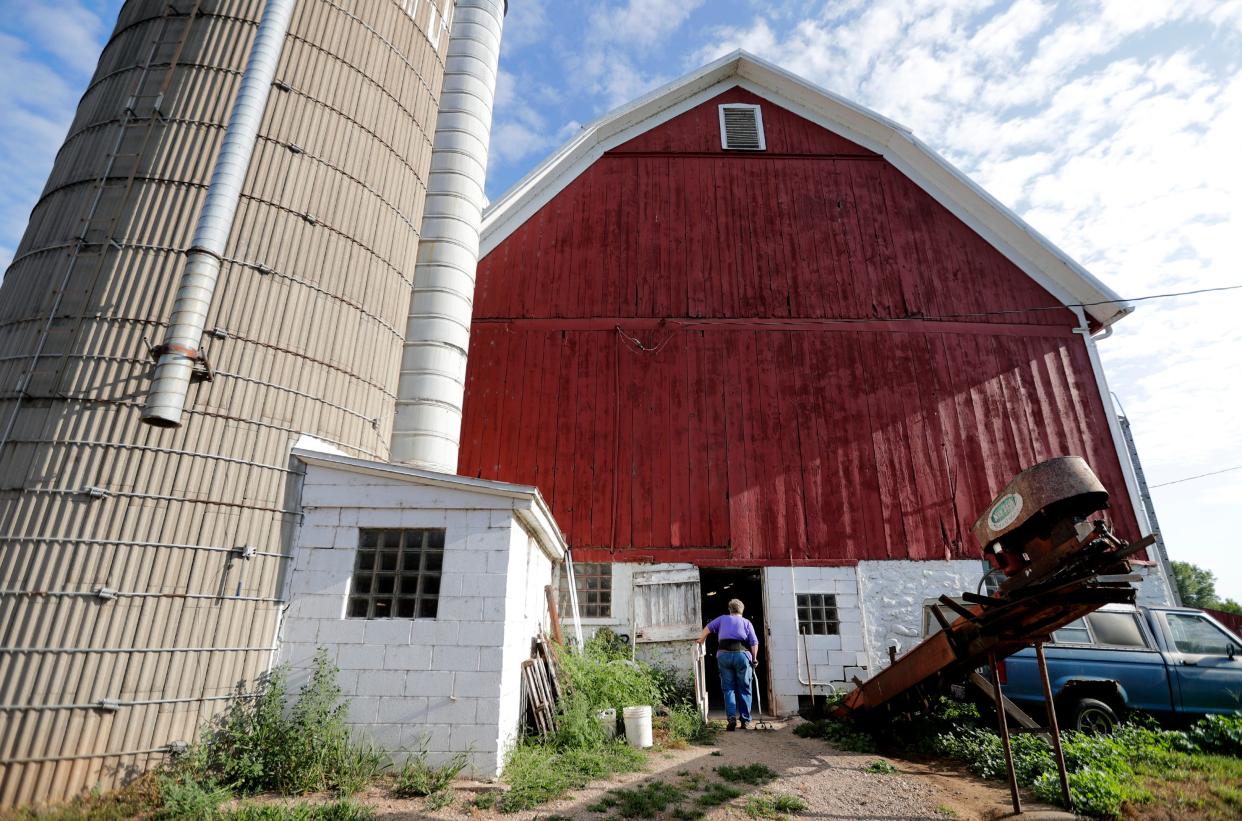Changes to federal financial aid formula would make college more costly for some Wisconsin farm families

Emma Vos spent much of her childhood feeding calves and milking cows on her family’s 120-herd dairy farm. Now, she’s a sophomore at the University of Wisconsin-Madison studying agriculture business management with plans to run the family farm in Maribel, just south of Green Bay, after graduation.
Future Wisconsin students following a similar career path may face more difficulty in earning a college degree.
A change in the federal student aid formula could mean lower levels of financial aid for children whose parents run family farms or small businesses. Rural students are already the least likely to attend college, according to the National Student Clearinghouse.
“(These changes) would definitely take a toll and be a heavy lift for my parents if they had to pay for our schooling,” Vos said. “I don’t know if it would even be possible.”
Vos, the third-generation in her family to work on the farm, attends college with a combination of federal loans and school grants. She annually files the Free Application for Federal Student Aid — commonly called FAFSA — that calculates how much college should cost based on a formula.
Many farm families have high reported assets, like farmland and equipment, but low incomes.
The current formula counts a family’s income off that land, but not its net worth on paper. The new formula does, making many farm families appear wealthier than they are.
A report from Iowa Student Aid Commission, the state’s student financial aid agency, found the new formula will provide similar aid eligibility for families when the farm or business’s net worth is less than $250,000 but said families will be eligible for less aid under the new formula when the net worth exceeds $500,000.
For example, a family with an adjusted gross income of $60,000 and a farm worth $1 million would be expected to contribute $7,626 annually for college, the report said. Under the new formula, the same family would be expected to contribute $41,056 annually.
The law streamlines application process, expands Pell Grant eligibility
The new formula is part of the FAFSA Simplification Act, which Congress approved in 2020. It will streamline the application process, reduce the number of questions asked and increase the number of students eligible to receive federal Pell Grants, which are given to those with the most financial need.
Melissa Haberman, director of financial aid at UW-Platteville, said simplifying the process is a worthy goal. But asking fewer questions can make it more difficult to determine who needs the money the most.
The Wisconsin Technical College System supports the changes, spokesperson Katy Pettersen said. Projections show students overall receiving an increase in financial aid “but in the case of the farmers, there are so many nuances with that, how big the family is, how much income or debt they may have,” she said.
Baldwin, others push for more guidance
Some members of Congress are calling for a fix before the new application is expected to launch later this year for the 2024-25 academic year.
Sen. Joni Ernst, R-Iowa, last month introduced a bill to restore the exemptions for family farms and small businesses. The bill was co-sponsored by seven Republicans and one Democrat from across the country, but none from Wisconsin.
The bill has been sent to the Senate Committee on Health, Education, Labor and Pensions.
Sen. Tammy Baldwin, D-Wisconsin, signed a letter in March urging U.S. Secretary of Education Miguel Cardona to provide more guidance to students who could be affected by the changes. Republican Sens. Chuck Grassley and Joni Ernst, of Iowa, as well as Democratic Sen. Michael Bennett, of Colorado, also signed the letter.
Under the new formula, debt will be subtracted from assets. But one question Baldwin and the others raised was how and when farm families should calculate their debt because it can vary widely throughout the year.
“While that effort is relatively straightforward for small businesses that have a steady stream of revenues and expenses, the nature of farming makes this calculation much more challenging,” the letter said. "Because these asset calculations will directly inform a family’s eligibility for financial aid, it is imperative that the Department provide guidance on how farm debts and assets will be considered for purposes of federal financial aid programs."
Our subscribers make this reporting possible. Please consider supporting local journalism by subscribing to the Journal Sentinel at jsonline.com/deal.
DOWNLOAD THE APP: Get the latest news, sports and more
This article originally appeared on Milwaukee Journal Sentinel: FAFSA changes could hit Wisconsin farm families hard

